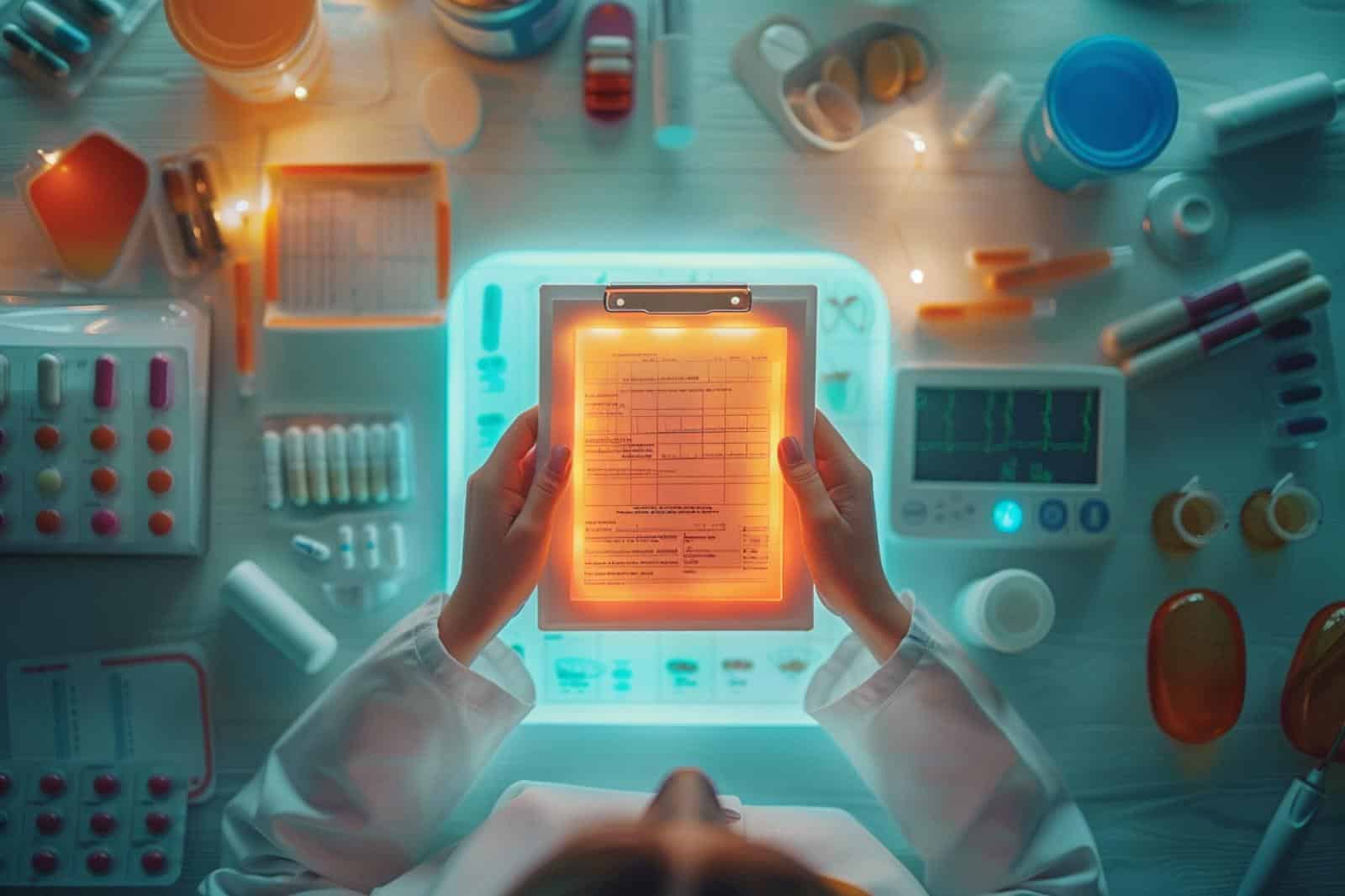What’s the Potential of Personal Health Data in Improving Healthcare Delivery?

Hello everyone! Today, we’re going to explore a subject that is rapidly changing the landscape of healthcare: personal health data. This data is unique to each individual, providing a snapshot of their health status and medical history. As technology evolves, the potential for this data to transform healthcare is enormous. Let’s dive in and see how personal health data could be a game-changer.
The Importance of Personal Health Data in Healthcare
Before we delve into the potential of personal health data, let’s first understand what it is and why it’s important. Personal health data refers to the medical and health information specific to an individual. It could be anything from your medical history, genetic data, lifestyle choices, or environmental exposures.
A lire également : Can AI Assist in Achieving Sustainable Urban Development Goals?
Historically, this data was kept in paper records, filed away in drawers at your doctor’s office. But with the advent of electronic health records (EHR), this information is now digital and can be easily accessed and shared. This has opened up a new world of possibilities for improving healthcare delivery and patient outcomes.
Enhancing Patient Care and Outcomes
Personal health data has the potential to revolutionize patient care. By providing a comprehensive overview of a patient’s medical history, it gives healthcare providers a fuller understanding of their patient’s health status. This can lead to more accurate diagnoses and treatment plans tailored specifically to the patient’s needs.
En parallèle : How Do Wearable Tech Innovations Improve Athlete Performance and Safety?
One aspect of this is the potential for predictive analytics. This involves using big data to predict future health outcomes based on past and current data. Imagine if your doctor could predict the likelihood of you developing a certain disease based on your medical history, lifestyle, and genetic traits. This could lead to early interventions and possibly prevent the onset of the disease.
An example of this would be predicting the risk of chronic diseases such as diabetes or heart disease based on lifestyle factors such as diet and exercise, combined with genetic predispositions. Healthcare providers could then work with the patient to implement preventative measures.
Facilitating Better Healthcare Management
Besides enhancing patient care, personal health data also holds potential in facilitating better healthcare management. For instance, it can aid in population health management, which involves managing the health outcomes of a group of individuals. This could be a certain demographic, a particular community, or patients with specific conditions.
With access to personal health data, healthcare providers can identify trends and patterns across a group of people. For instance, they might notice a high prevalence of a certain condition in a particular demographic. Armed with this information, they can then implement targeted interventions to improve health outcomes for that group.
Furthermore, personal health data can also be used in healthcare resource management. By analyzing this data, healthcare providers can identify areas where resources are needed most and allocate them accordingly. This can lead to more efficient use of resources and potentially lower healthcare costs.
Improving Clinical Research and Public Health
Personal health data not only improves individual patient care and healthcare management but also has the potential to advance clinical research and public health.
In clinical research, having access to a large amount of patient data can help researchers identify patterns and trends in disease progression and treatment outcomes. This can lead to new insights and advancements in medical science. For instance, researches can use this data to identify potential risk factors for certain diseases, leading to the development of preventative measures.
In terms of public health, personal health data can help track disease outbreaks and understand health trends at a population level. For example, during the COVID-19 pandemic, patient data was crucial in tracking the spread of the virus and implementing public health measures.
Privacy and Security Concerns
Of course, the use of personal health data is not without its challenges. One of the major concerns is privacy and security. Health data is highly sensitive and personal, and it’s essential to ensure this data is protected and not misused.
Regulations such as the Health Insurance Portability and Accountability Act (HIPAA) in the U.S., and the General Data Protection Regulation (GDPR) in the EU, provide some guidelines for the protection of personal health data. However, with the rapid advancement of technology and data sharing capabilities, it’s important for these regulations to evolve to ensure robust data protection.
In conclusion, personal health data holds immense potential in transforming healthcare. From improving patient care to advancing clinical research, the possibilities are endless. However, it’s equally important to address the challenges that come with it, particularly in regards to privacy and security. As we move forward, it’s crucial to strike a balance between leveraging the benefits of personal health data while ensuring its safe and ethical use.
Empowering Patients Through Personal Health Data
Personal health data isn’t just beneficial to healthcare providers and researchers—it’s also empowering for patients. Having access to one’s own health data can encourage active participation in one’s healthcare journey.
Understanding your own health patterns can help you make informed decisions about your lifestyle choices and treatments. For instance, seeing a pattern of high blood sugar levels in your health data can motivate you to adopt a healthier diet and exercise routine. Furthermore, personal health data can also help you track the progress of your health goals, providing a tangible measure of your efforts.
An area of growing interest in this regard is the use of health informatics and wearable devices. These gadgets can track various health metrics like heart rate, sleep patterns, and physical activity, providing a wealth of personal health data. This real-time information can help individuals make immediate adjustments to their lifestyle for better health outcomes.
The use of such healthcare data has also grown in popularity with the rise of telemedicine. Having access to accurate and up-to-date health data can make virtual consultations more effective. It allows healthcare providers to monitor a patient’s condition remotely, reducing the need for in-person appointments.
The empowerment of patients through personal health data also aligns with the increasing emphasis on patient-centered care. As healthcare shifts towards this model, individual health data will play a crucial role in facilitating it.
Conclusion: The Future of Personal Health Data in Healthcare
Without a doubt, personal health data is a powerful tool with enormous potential in healthcare, from improving patient care to facilitating healthcare management and advancing clinical research. As technology continues to evolve, we can expect this data to play an even more significant role in health care delivery.
Imagine a future where a wearable device can predict a potential health crisis before it happens, or where your electronic health records can immediately alert your healthcare provider of any concerning changes in your health. This is not a far-off dream but a reality that we are steadily moving towards.
Nonetheless, while we leverage the power of personal health data, it is critical that we do not overlook the crucial aspect of privacy and security. Protecting patient data should be of paramount importance. We need to continue to update and enforce regulations like HIPAA and GDPR to keep up with the changing landscape of data security.
Moreover, efforts should be made to enhance data quality and accuracy. The benefits of personal health data can only be truly realized if the information is accurate and reliable. This requires regular data collection and updating of health records, as well as the use of advanced analytics tools.
The journey to fully harnessing the potential of personal health data is a challenging one, involving not just technological advancements but also legal, ethical, and logistical considerations. However, as we navigate these challenges, we are opening the doors to a future where healthcare is more effective, efficient, and personalized than ever before.
